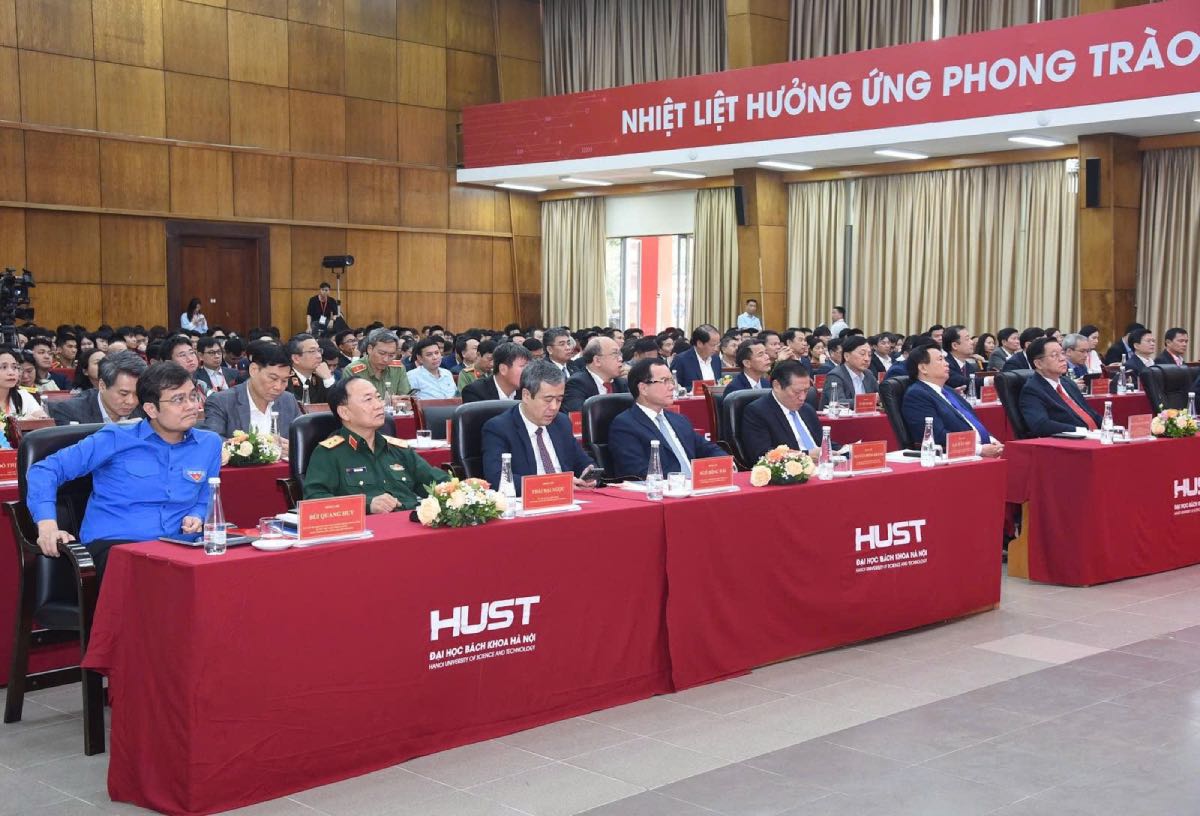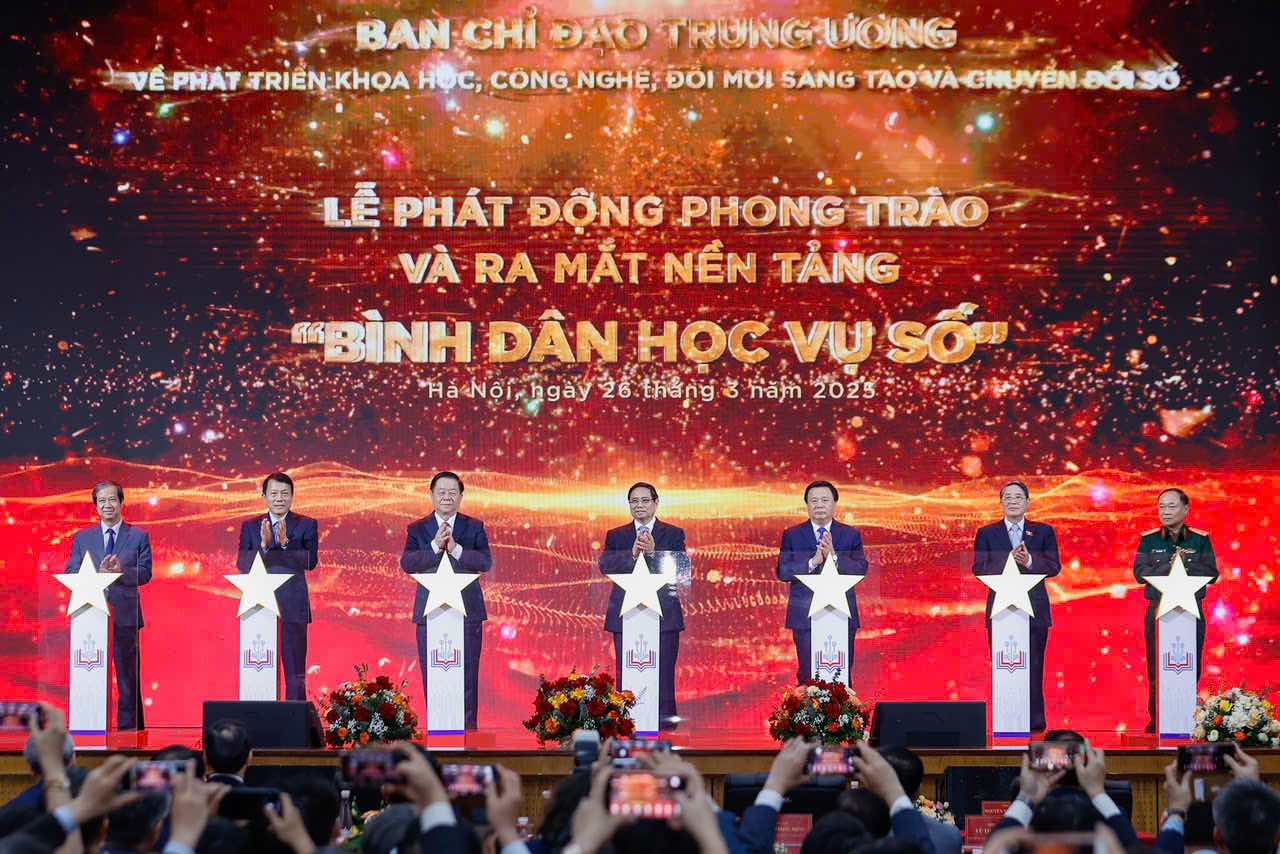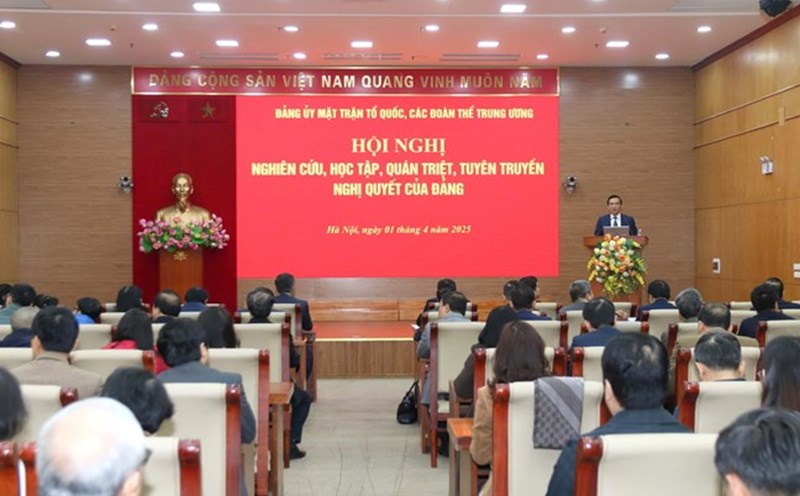On the afternoon of March 26, at Hanoi University of Science and Technology, Politburo member and Prime Minister Pham Minh Chinh - Deputy Head of the Central Steering Committee on science, technology development, innovation and digital transformation; Head of the Government Steering Committee on science, technology development, innovation, digital transformation and Project 06 - chaired the launching ceremony of the movement and launched the "Digital citizenship" platform.
Also attending were Politburo members: Secretary of the Party Central Committee, Head of the Central Propaganda and Mass Mobilization Commission Nguyen Trong Nghia; Director of the Ho Chi Minh National Academy of Politics, Chairman of the Central Theoretical Council Nguyen Xuan Thang; General Luong Tam Quang, Minister of Public Security. Also attending was Central Party Committee member, President of the Vietnam General Confederation of Labor Nguyen Dinh Khang.
Speaking at the ceremony, Prime Minister Pham Minh Chinh emphasized that this event is an important task to concretize the Party's guidelines and policies in Resolution No. 57-NQ/TW dated December 22, 2024 of the Politburo on breakthroughs in the development of science and technology, innovation and national digital transformation; responding to the spirit of lifelong learning directed by General Secretary To Lam.

Prime Minister Pham Minh Chinh stated that the awareness of science and technology, innovation, and digital transformation is an objective, strategic, and top priority choice, it is impossible not to mention the digital society, digital nation, and comprehensive, comprehensive digital citizens, from which it can be seen that there cannot be no "Digital education" movement.
Regarding the results of creating a foundation for the movement, the Digital Government has achieved many positive results, the rate of full online public services has reached 45%, people have logged into the National Public Service Portal using the VNeID platform with more than 93 million visits;
Digital infrastructure is developing strongly, 5G has been commercialized, international internet speed has increased sharply; 96.4% of villages and hamlets have fiber optic internet, 82.9% of households use broadband fiber optic Internet;
E-commerce continues to grow strongly (in 2024, it will reach 28 billion USD, an increase of 36%). Cashless payments are widely deployed.
The Prime Minister noted that in the process of implementing the movement, according to their authority, ministries, branches and localities must proactively propose and promptly reward good examples, advanced models and good practices.
At the same time, it is necessary to point out addresses, groups and individuals who have not completed and have not paid due attention to this movement to review and handle responsibilities according to the regulations of the Party and State.

The Prime Minister emphasized that this movement must be an important political task, an order of the heart, the intelligent thinking of the mind, the drastic action of each people; arousing and spreading the revolutionary spirit, the tradition of great solidarity, the spirit of autonomy, confidence, self-reliance, self-strengthening and national pride, the thousand-year tradition of civilization, "learning, learning again, learning forever";
Strive to complete according to the set schedule; compete to achieve achievements towards celebrating major holidays in 2025 and welcoming party congresses at all levels, towards the 14th National Party Congress.
The Prime Minister requested efforts to ensure that after 1 year, the "digital education" movement must complete the set goals.
The head of the Government directs that it is necessary to focus on implementing "one goal, two to promote, three to ensure, four key tasks." In which, one goal is to popularize basic digital knowledge and skills for all people with the spirit of revolution, the whole people, comprehensively, widely, no one is left behind.
The "Digital education platform" at https://binhdanhocvuso.gov.vn was built to support improving digital capacity, the ability to use devices and digital applications for people.











